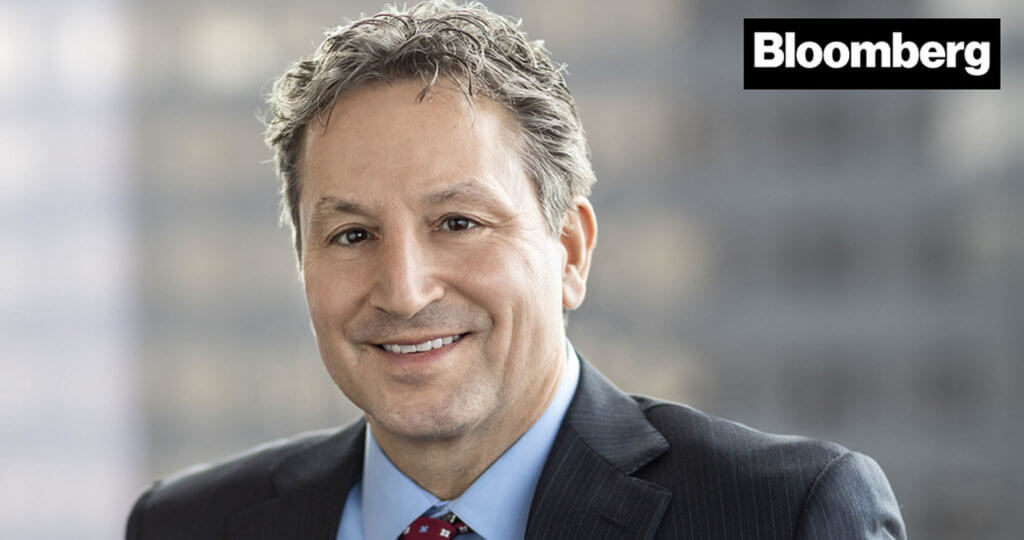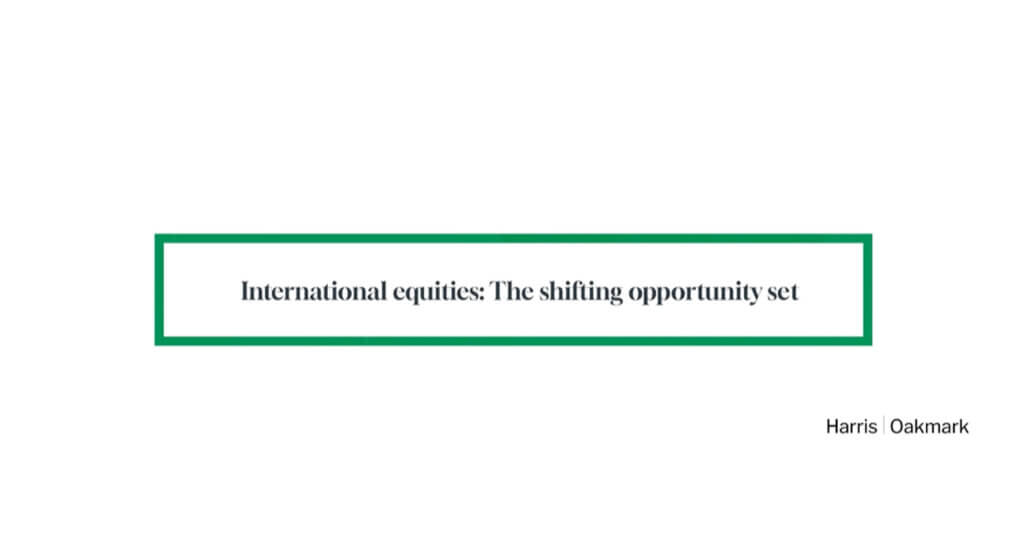Oakmark International Fund – Investor Class
Average Annual Total Returns 12/31/20
Since Inception 09/30/92 9.24%
10-year 6.20%
5-year 6.92%
1-year 4.92%
3-month 31.48%
Gross Expense Ratio: 1.06%
Net Expense Ratio: 1.04%
Oakmark International Small Cap Fund – Investor Class
Average Annual Total Returns 12/31/20
Since Inception 11/01/95 8.91%
10-year 5.22%
5-year 7.20%
1-year 5.02%
3-month 25.99%
Gross Expense Ratio: 1.39%
Net Expense Ratio: 1.37%
Expense ratios are based on estimated amounts for the current fiscal year; actual expenses may vary.
The net expense ratio reflects a contractual advisory fee waiver agreement through January 27, 2022.
Past performance is no guarantee of future results. The performance data quoted represents past performance. Current performance may be lower or higher than the performance data quoted. The investment return and principal value vary so that an investor’s shares when redeemed may be worth more or less than the original cost. The To obtain the most recent month-end performance data, view it here.
Fellow Shareholders,
Very similar to the year 2016, this past year was filled with extremes driven by exogenous factors, from the pandemic to Brexit, with elections in between. For the first quarter of 2020, recall that both of our international funds, Oakmark International and Oakmark International Small Cap, declined just under 40% and underperformed their respective indexes. Leading up to the fourth quarter, both Funds began to recover before having a strong uplift in the quarter ending December 31, 2020. By the end of the year, they overcame their large year-to-date deficits experienced earlier with the Oakmark International Fund growing over 30% and the Oakmark International Small Cap Fund increasing nearly 30% for the quarter. Both also strongly outperformed their respective benchmarks during the last three months of the calendar year. Please see separate Fund letters for more details.
Value Investing Revisited—AGAIN
I wrote in my March 31, 2020 letter about the divergence between value and “non-value” stocks. Though this spread has narrowed to some degree, there is still evidence in terms of valuation spreads that this divergence is still massive. The best example of this valuation differential exists in stocks of companies involved directly or indirectly with the electrification of motor vehicles. For instance, a company called QuantumScape, which is doing research into solid-state battery technology, currently has an enterprise value of roughly $32 billion. QuantumScape has zero profits AND zero sales! BMW, on the other hand, a company that produces more than 2 million vehicles annually at a good profit has an enterprise value of roughly the same, $32 billion. BMW is not only one of the top global luxury brands in the world; it also plans to produce an estimated 500,000 (20% of production) electrified vehicles by 2023. And speaking of 500,000 electrified vehicles, this is the number of cars that Tesla is to have sold in 2020—less than one-fourth the total of BMW’s sales. Tesla makes very little, if any, money selling its cars, and yet, it has an enterprise value of just over $850 billion, nearly 25 times greater than BMW. Lastly, on the electrification topic, Baidu, the Chinese search firm, announced that they are “thinking about entering the electric vehicle market.” After this announcement, its stock rose over 35%!
I am pretty certain that we will see strong growth in electrified vehicles over the next decade as most of this demand, at this point in time, is being driven by regulators particularly in Europe, the U.K. and China. However, involvement in electrification doesn’t inherently mean that economic value exists, unless there is a present or future cash flow stream that justifies a level of enterprise value. At this stage, given the rapid expansion of electrified vehicles planned by many of the legacy original equipment manufacturers (OEM) and the huge valuation differentials between these companies and “pure plays” companies, considering price and valuation, we believe that we are invested where there is greater probability of future returns. Companies like BMW, Daimler and Toyota, which are in the Oakmark International Fund, are examples of businesses with good prospects for competitive future returns. Lastly, Glencore, one of our larger holdings, is a key supplier of materials needed for electric vehicles and other alternative energy sources. Copper, nickel, cobalt and zinc are all needed for new forms of power generation, power distribution and storage. Glencore produces these materials in abundance and at the low end of the cost curve.
Business Purpose and YOU
A raging debate continues in our society today (okay, one of the many) regarding who businesses should be run for: those who own it (the shareholders) or those who don’t own it but may be somehow directly or indirectly involved in the company (known as “stakeholders”). We at Harris/Oakmark often push managements to keep shareholder value creation as a primary focus. We don’t necessarily see a conflict between a company being primarily focused on creating long-term value for its owners—you, the shareholder—with other objectives, like being ethical operators, non-discriminators and respectful stewards of our environment. To create value over the long term, we believe that companies must invest for the future, including in its employees. A company that discriminates or doesn’t value diversity of thought and experience will unlikely succeed at value creation. A company that is unethical and pollutes will pay for this behavior in terms of reputational risk and fines, which is also not conducive to value creation. A company that is a good member of its greater community will be rewarded with an enhanced reputation that will ultimately lead to customer and employee loyalty and satisfaction, which is good for value creation. (See the recent heartwarming story on how Hormel Foods, LLC., my first employer out of college, has purchased meals from many local restaurants during the pandemic to help restaurateurs keep their doors open. And there are many more examples.)
However, some in the “stakeholder” movement camp want to put aside the need for managements to focus on shareholder value creation in favor of managements focusing on satisfying stakeholders. There are a number of problems with stakeholder focus from both investment and societal perspectives. First, from an investment perspective, if managements abdicate their responsibility to their owners, it is likely that returns will slip and value will be destroyed as their focus will no longer be value creation but, rather, on stakeholder appeasement. Second, from a societal perspective, in a democracy, we have elected officials who have the responsibility to make the laws that citizens and corporations live under. When stakeholders push businesses to adhere to some vaguely defined wish list, in essence, democracy and the owners of the business become disintermediated. I believe this is an approach that not only disrespects private property rights, but will ultimately lead to lower shareholder returns. Yes, corporations need to be good “corporate citizens.” For shareholders to win, the Friedman Doctrine must take priority. This doctrine, written in 1970 by economist Milton Friedman states, “There is one and only one social responsibility of business—to use its resources and engage in activities designed to increase profits so long as it stays within the rules of the game, which is to say, engages in open and free competition without deception or fraud.” It seems to me that it’s best that our elected officials create the rules that Friedman speaks of rather than other related parties.
Again, to all shareholders, thank you for your continued loyalty and patience during this exceptionally turbulent period. Best wishes for a happy and healthy 2021!
The securities mentioned above comprise the following percentages of the Oakmark International Fund’s total net assets as of 12/31/20: Baidu 0%, BMW 3.2%, Daimler 3.8%, Glencore 4.9%, Hormel Foods, LLC 0%, QuantumScape 0%, Tesla 0% and Toyota Motor 1.2%.
View the full list of Oakmark International Fund holdings as of the most recent quarter-end.
The securities mentioned above comprise the following percentages of the Oakmark International Small Cap Fund’s total net assets as of 12/31/20: Baidu 0%, BMW 0%, Daimler 0%, Glencore 0%, Hormel Foods, LLC 0%, QuantumScape 0%, Tesla 0% and Toyota 0%.
Portfolio holdings are subject to change without notice and are not intended as recommendations of individual stocks.
The funds’ portfolios tend to be invested in a relatively small number of stocks. As a result, the appreciation or depreciation of any one security held by the Fund will have a greater impact on the Funds’ net asset value than it would if the Fund invested in a larger number of securities. Although that strategy has the potential to generate attractive returns over time, it also increases the Funds’ volatility.
The stocks of smaller companies often involve more risk than the stocks of larger companies. Stocks of small companies tend to be more volatile and have a smaller public market than stocks of larger companies. Small companies may have a shorter history of operations than larger companies, may not have as great an ability to raise additional capital and may have a less diversified product line, making them more susceptible to market pressure.
Investing in foreign securities presents risks that in some ways may be greater than U.S. investments. Those risks include: currency fluctuation; different regulation, accounting standards, trading practices and levels of available information; generally higher transaction costs; and political risks.
The information, data, analyses, and opinions presented herein (including current investment themes, the portfolio managers’ research and investment process, and portfolio characteristics) are for informational purposes only and represent the investments and views of the portfolio managers and Harris Associates L.P. as of the date written and are subject to change and may change based on market and other conditions and without notice. This content is not a recommendation of or an offer to buy or sell a security and is not warranted to be correct, complete or accurate.
Certain comments herein are based on current expectations and are considered “forward-looking statements”. These forward looking statements reflect assumptions and analyses made by the portfolio managers and Harris Associates L.P. based on their experience and perception of historical trends, current conditions, expected future developments, and other factors they believe are relevant. Actual future results are subject to a number of investment and other risks and may prove to be different from expectations. Readers are cautioned not to place undue reliance on the forward-looking statements.
All information provided is as of 12/31/2020 unless otherwise specified.







